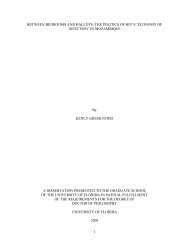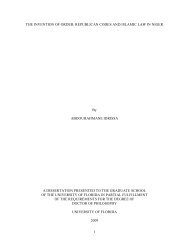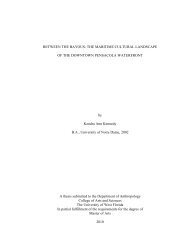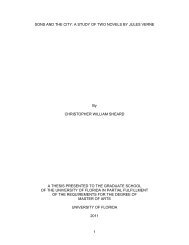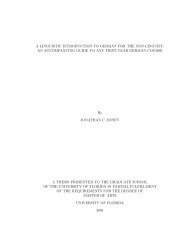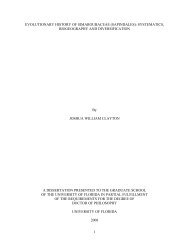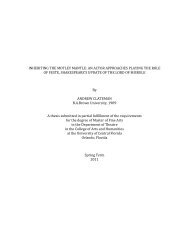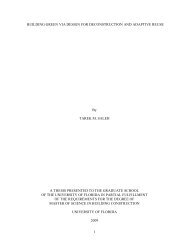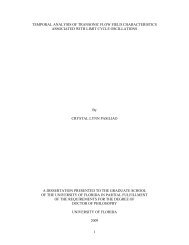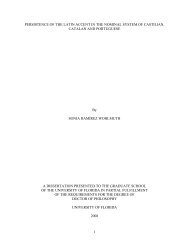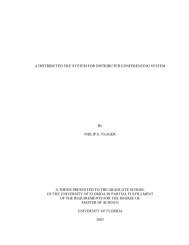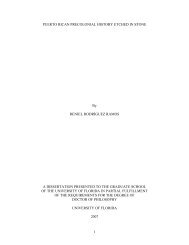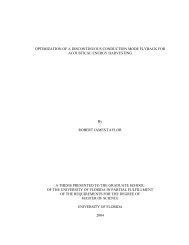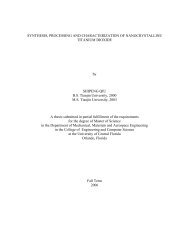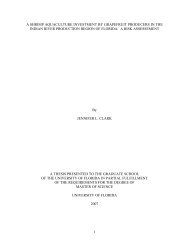t b a b a
t b a b a
t b a b a
Create successful ePaper yourself
Turn your PDF publications into a flip-book with our unique Google optimized e-Paper software.
ABSTRACT<br />
Quantum computation has been a rich field of study for decades because it promises<br />
possible spectacular advances, some of which may run counter to our classically rooted<br />
intuitions. At the same time, quantum computation is still in its infancy in both theoretical<br />
and practical areas. Efficient quantum algorithms are very limited in number and scope; no<br />
real breakthrough has yet been achieved in physical implementations.<br />
Grover’s search algorithm can be applied to a wide range of problems; even problems not<br />
generally regarded as searching problems can be reformulated to take advantage of quantum<br />
parallelism and entanglement leading to algorithms which show a square root speedup over<br />
their classical counterparts. This dissertation discusses a systematic way to formulate such<br />
problems and gives as an example a quantum scheduling algorithm for an R||Cmax problem.<br />
This thesis shows that quantum solution to such problems is not only feasible but in some<br />
cases advantageous.<br />
The complexity of the error correction circuitry forces us to design quantum error cor-<br />
rection codes capable of correcting only a single error per error correction cycle. Yet, time-<br />
correlated errors are common for physical implementations of quantum systems; an error<br />
corrected during a certain cycle may reoccur in a later cycle due to physical processes spe-<br />
iii



